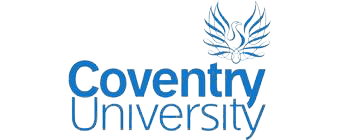Computing, from the internet to mobile computing, smart devices and beyond, has changed the world – and continues to do so. Next-generation robots, driverless cars, and digital currencies are just three examples of what is already on the way.
Creating these exciting new technologies generates an ongoing need for excellent computing graduates. Computing BSc (Hons) is a full stack developer degree which aims to teach you the fundamental range of skills necessary to become a software developer.
The degree is designed to equip you with key programming, analysis and design skills including (but not limited to) back and front-end web development, internet-of-things development, user experience design, quality assurance and testing, system administration, and security.
We aim to offer a modern, relevant computing degree which, upon successful completion, directly promotes employable skills to effectively prepare you for a career within the industry. We aim to teach the tools, techniques and skills demanded by industry using state-of-the-art hardware and software and modern approaches to teaching, which emphasise practical, hands-on, problem-driven learning built around real-world challenges.














